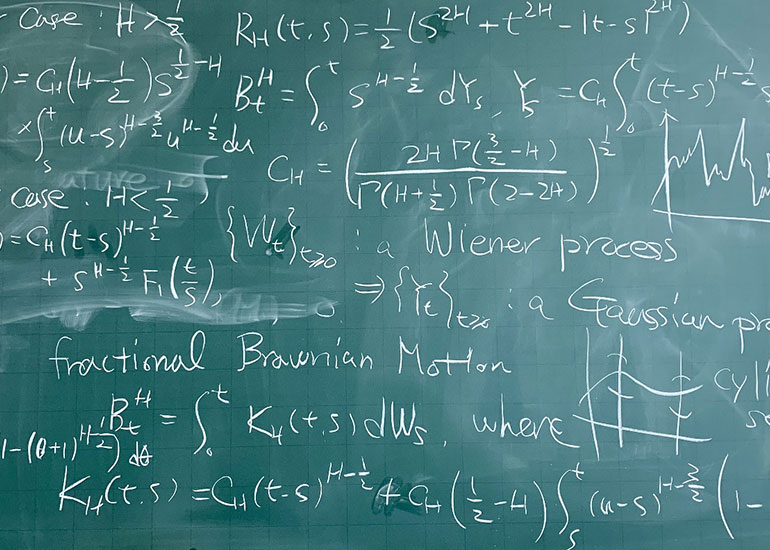The mathematics department actively deals with the 21st century information age and studies applied mathematics such as algebra, analytical, geometric, topological mathematics, and applied mathematics such as statistics, cryptography, financial mathematics, mathematical biology, and machine learning to foster and produce mathematicians who can cope with various scientific challenges facing modern society.
If you complete the teaching course, which is opened in the mathematics department, you can become a public/private middle school or high school teacher, or enter insurance company, financial company, government agency, and general enterprise. With the introduction of a multiple major system, it is possible to enter other fields if you are majored in multiple fields. In addition, you can go to a graduate school and conduct an academic research in specialized major, and after graduation, you can work in specialized fields such as universities, research institutes, businesses, etc.
The mathematics department provides various curriculum/comparative classes using math-only software such as MATLAB and Mathematica and 3D printers so that the students can advance into various fields to maximize their mathematical talents. It also generously supports students’ extra curricular activities such as ASUM academic clubs and big data clubs and encourages various hobby activities. As a result, the mathematics department achieved the highest level of employment in the National University's Mathematics Department in 2015 and the JoongAng Ilbo's department evaluation in 2016.
As of February 2021, graduate schools have produced 34 PhD degree holders and about 85 master degree holders, and in terms of PhDs, they are engaged in professional fields working as university professors(7), lecture professors(2), middle and high school teachers(4), and university instructors(17). In the case of master's degree, graduates are working as researchers in related fields such as finance, statistics, and engineering.
If you complete the teaching course, which is opened in the mathematics department, you can become a public/private middle school or high school teacher, or enter insurance company, financial company, government agency, and general enterprise. With the introduction of a multiple major system, it is possible to enter other fields if you are majored in multiple fields. In addition, you can go to a graduate school and conduct an academic research in specialized major, and after graduation, you can work in specialized fields such as universities, research institutes, businesses, etc.
The mathematics department provides various curriculum/comparative classes using math-only software such as MATLAB and Mathematica and 3D printers so that the students can advance into various fields to maximize their mathematical talents. It also generously supports students’ extra curricular activities such as ASUM academic clubs and big data clubs and encourages various hobby activities. As a result, the mathematics department achieved the highest level of employment in the National University's Mathematics Department in 2015 and the JoongAng Ilbo's department evaluation in 2016.
As of February 2021, graduate schools have produced 34 PhD degree holders and about 85 master degree holders, and in terms of PhDs, they are engaged in professional fields working as university professors(7), lecture professors(2), middle and high school teachers(4), and university instructors(17). In the case of master's degree, graduates are working as researchers in related fields such as finance, statistics, and engineering.
